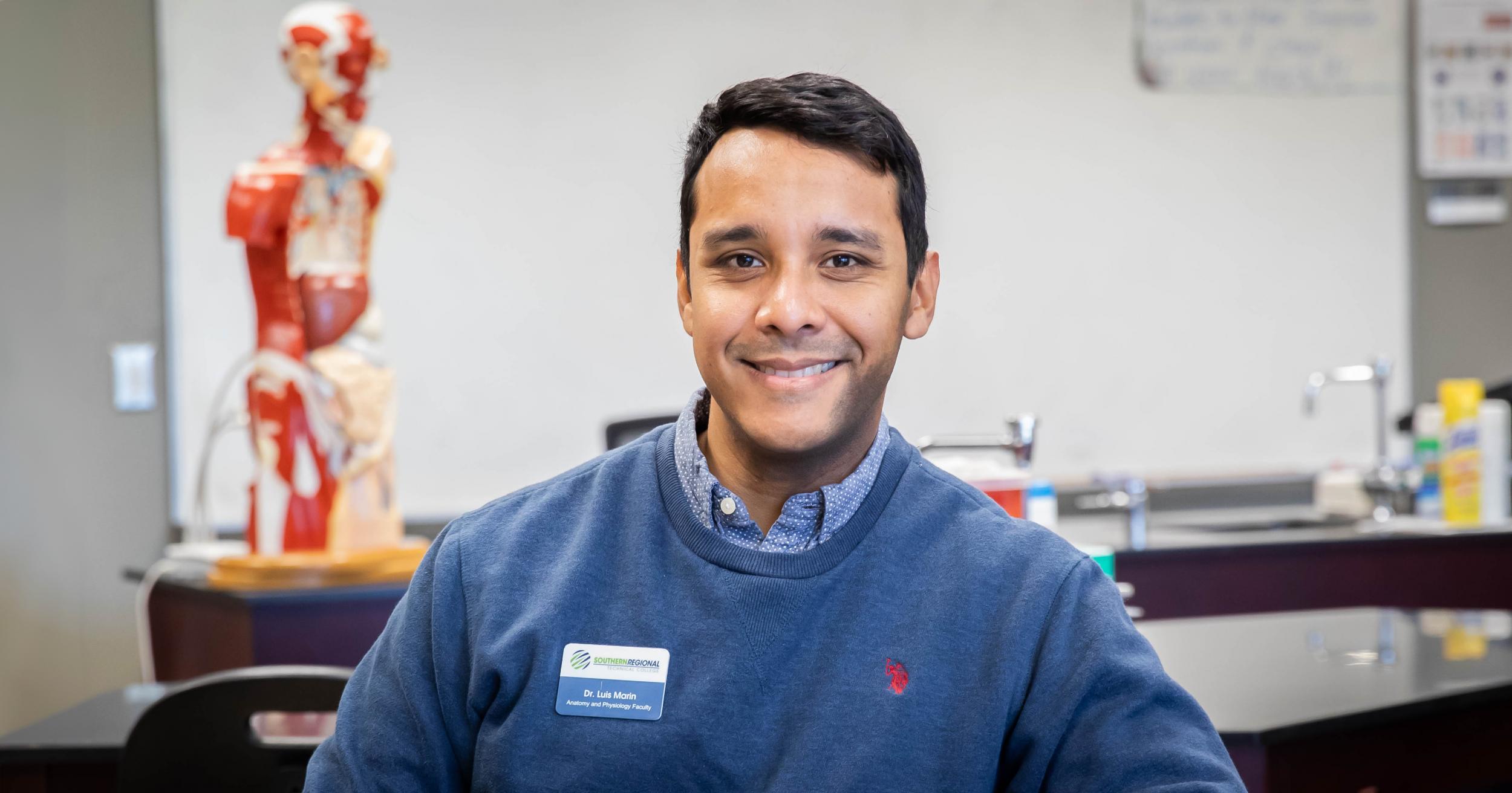Eight years ago, Dr. Luis Marin Guillent moved to the United States of America from Venezuela speaking no English. He had studied to become a physician at one of the most prestigious universities in Venezuela, graduating in the top 20% of his class at the University of Carabobo. He was a practicing physician when he had to leave Venezuela, but because he did not speak, read, or write in English, he could not take the board exams to practice medicine in the USA. So, he spent several years working various jobs while learning English and familiarizing himself with this country.
Late last year, his friend Dr. Saul Ramos Aguilar began talking to him about joining the SRTC faculty as an Anatomy and Physiology instructor at SRTC-Thomasville. He explained that he could put his medical knowledge to work, preparing Health Science students for their healthcare careers, just as Dr. Ramos Aguilar had as an A&P instructor at SRTC-Moultrie.
In May of 2023, Dr. Marin Guillent began his teaching career, a move he had never dreamed of making. “I never thought I would be in a classroom like this,” he said. “Teaching other people about anatomy and physiology in another language. It’s been a challenge, but it has been amazing. I really love teaching others because now it is not just me applying my knowledge. Now I'm teaching the next generations.”
Almost every program in SRTC’s School of Health Sciences has an A&P requirement, so Dr. Marin Guillent teaches a wide variety of students. “I teach future nurses, rad techs, EMTs... Good, critical healthcare workers that are vital to a hospital’s success. What motivates me now is that I see I'm giving all of them a little piece of myself.”
Dr. Marin Guillent said that even after he completes his stateside boards and returns to practicing medicine, he would like to continue teaching classes at SRTC because he recognizes the importance of the work. He begins each new class by expressing how important his students will be to their patients throughout their careers, and challenging them to make him proud. “I have family and friends who need good healthcare, just as we all do. If I go to the emergency room and I see any of my former students working there, I want to be confident that they will take great care of my family and friends. I tell them, ‘If I see you working in a hospital one day, I want to know that you are the best-prepared medical professional in the room because you started working hard in my classroom. So make me proud.’”
